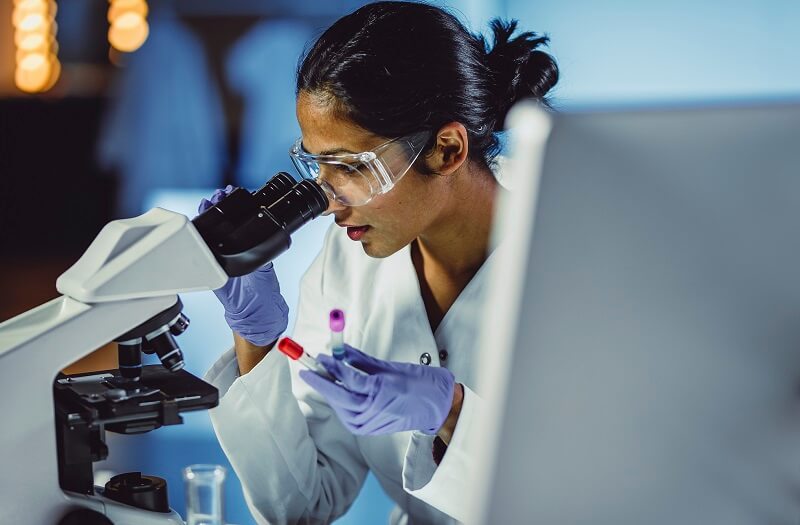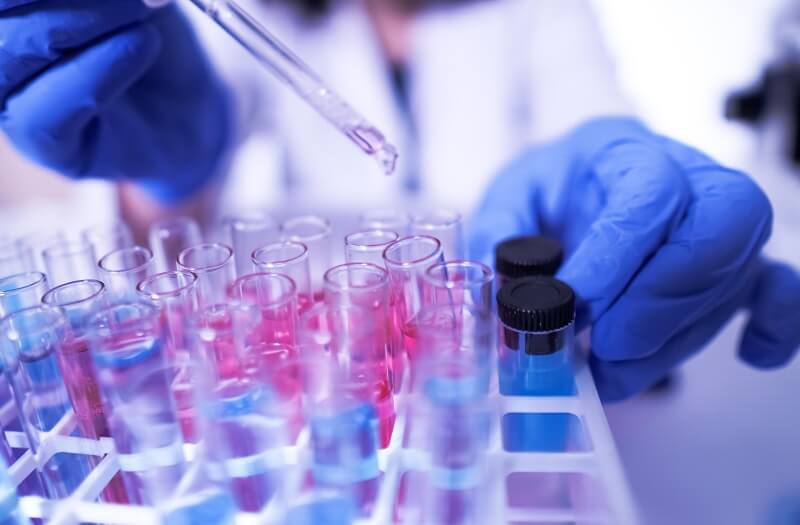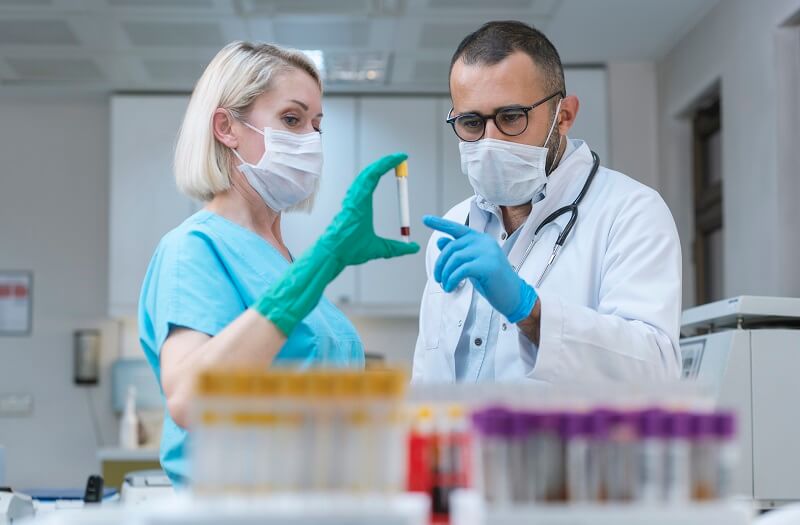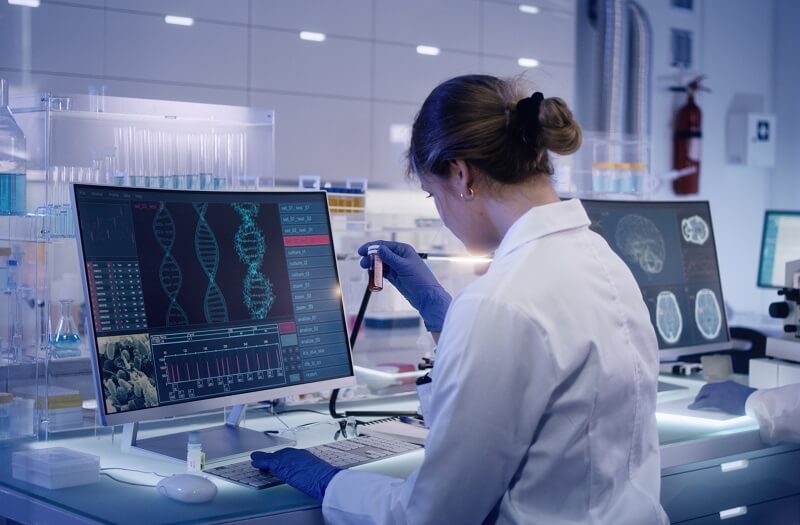- Home
- Growth Hormone
- Growth Hormone
- Growth Hormone Deficiency
- Growth Hormone Therapy
- Growth Hormone Injections
get startedThe Most Effective Hormone Replacement TherapiesWhat Do Medical Studies Say About Human Growth Hormone?
Many medical studies have proven the benefits of growth hormone therapy for children, men and women.
Human growth hormone was discovered in the 1920s. Since the 1950s it has been proven in clinical studies to be effective in the treatment of growth hormone deficiency, (GHD) in children who had failed to grow to normal height.
In the decades since, medical research began to look into other uses of human growth hormone (HGH). Specifically, clinical trials were conducted to test the effectiveness of HGH as a hormone replacement therapy for the natural decline of HGH that occurs as men and women age. This age-related HGH decline is responsible for loss of muscle, decreased energy, increased fat, loss of skin elasticity, and many of the other symptoms we think of as “aging.”
In 1990, a landmark medical study into the benefits of HGH therapy for age-related GHD was published. The study was published in the prestigious New England Journal of Medicine, by Daniel Rudman, MD, with the Medical College of Wisconsin. Dr. Rudman studied a group of men aged 61 to 81, who were identified as having low levels of HGH. Using typical double-blind protocols, over the course of six months, half of the men in the study were given HGH injections, the other half, placebo.
The men receiving the HGH clearly showed its benefits. Specifically, these men over the age of 60 saw increased muscle tone, loss of fat, and regenerated skin quality.
In the years since the Rudman clinical study of HGH, HGH has also been extensively studied for its proven beneficial effects on AIDS and on other “muscle wasting” diseases. In clinical studies of HIV/AIDS patients, and more recently in patients with muscular dystrophy, HGH has been shown to slow degeneration of muscle tissue and increase muscle mass. In clinical studies, as well as actual use for patients with HIV/AIDS, HGH has been shown to significantly increase muscle mass, improve strength and energy, and provide higher quality of life, and in many cases, even prolonged longevity.
These successes have led to new avenues of research into the potential anti-aging qualities of human growth hormone.
There has been a long history of clinical research into HGH.
Latest Studies About HGH for Men
Since Dr. Rudman’s breakthrough study of the positive effects of HGH replacement therapy for older men, hundreds of other studies of HGH have been done. Many of these have noted positive effects of HGH injections for the treatment of age-related growth hormone deficiency.
HGH is produced by the pituitary gland. As men age, the ability of the pituitary gland to produce HGH, diminishes. This natural slowdown has triggered human growth hormone studies into HGH as a way to stave off some of the most debilitating symptoms of aging in men, such as decreased muscle and bone mass. Several of these studies on the effectiveness of HGH replacement, have shown that for men who have age-related GHD, injections of HGH can:
- Increase muscle mass
- Increase bone density
- Decrease body fat
- Increase the ability to exercise, and to get more benefits from exercising
According to a 2018 edition of the Harvard Health newsletter, “Adults with bona fide HGH deficiencies benefit from HGH injections. They enjoy protection from fractures, increased muscle mass, improved exercise capacity and energy, and a reduced risk of future heart disease.”
A 2019 medical study on HGH, published in The World Journal of Men’s Health, concluded that HGH replacement therapy, could increase the lifespan of mice, and potentially of humans, but more research is required.
Latest Studies About HGH for Women
There have also been numerous scientific studies into HGH and women. In researching HGH and women, researchers have found that women actually produce more HGH than men. You would think the opposite would be true, that men, because of their larger muscles, would have more HGH than women. However, HGH research has found that women make much more HGH than men. A recent HGH study found out that the reason for this has to do with estrogen. The HGH researchers found that estrogen stimulates greater production of HGH in women than men. The results of this HGH study also mean, therefore, that post-menopausal women are at greater risk of developing age-related GHD than men. As estrogen levels drop after menopause, a woman’s HGH level drops significantly. These clinical studies of women and HGH suggest that women over 60 can benefit even more than men from growth hormone therapy.
Medical research has shown how essential that HGH is to both men and women.
Research Studies on the Effectiveness of Growth Hormone Therapy
There have been numerous research studies that indicate the effectiveness of HGH injections for treating age-related GHD in men and women.
HGH research studies have found that once we are over the age of 35, we lose about one pound of muscle per year. That loss is directly related to the loss of 1 to 2% of your HGH that also occurs every year after that same age. The symptoms of age-related GHD include:
- Decreased strength
- Loss of bone density
- Loss of lean muscle
- Increased belly fat
- Glucose intolerance leading to insulin-resistance and prediabetes
- Poor skin health
- Cognitive issues
- Sexual health issues
A search of Pub Med reveals nearly 400 scholarly articles on the positive benefits of growth hormone therapy published between the years 2018 and 2020.
One of the most recent, published in the March 2018 edition of the International Journal of Molecule Science, entitled, Treatment with Growth Hormone for Adults with Growth Hormone Deficiency Syndrome: Benefits and Risks concluded: “Growth hormone replacement exerts unquestionable beneficial effects in many [adult] patients with GHD, and its use is safe for approved indications. [In addition,] HGH has shown beneficial effects on body composition, exercise capacity, bone structure, serum lipids, and quality of life.”
Several studies have indicated the positive benefits of HGH injections for age-related HGH decline.
Now that you know a little bit more about what the medical research says about the many positive benefits of HGH, why not contact us, and find out more about how we may help you with your health and wellness goals.
- Growth Hormone Therapy




























